Our emotional relationship with money is complex. How we feel about it often shapes how we spend and how we save it. Joining us today is Jamie Hopkins, Managing Partner of Wealth Solutions at Carson Group and co-author of “Find Your Freedom – Financial Planning for a Life on Purpose”. Jamie talks about how advisors and clients need to rethink goals and processes for a successful planning outcome. We also sneak in Jamie’s great perspective on the recently-passed SECURE Act 2.0.
Links mentioned in the show:
Listen
Watch
Receive Updates
Show Sponsors
Episode Transcript
The discussion is not meant to provide any legal, tax, or investment advice with respect to the purchase of an insurance product. A comprehensive evaluation of a consumer’s needs and financial situation should always occur in order to help determine if an insurance product may be appropriate for each unique situation.
paul_tyler:
i this is paul tyler and welcome to another episode of the annuity show and we have our full crew here today bruno welcome from the north
bruno_caron:
good morning thank you
paul_tyler:
ramsey you’re looking very very
ramsey_d_smith:
m
paul_tyler:
professional today on a friday
ramsey_d_smith:
and i’m north of where i
bruno_caron:
m
ramsey_d_smith:
usually am i’m in new york instead of atlanta it’s always always
bruno_caron:
m
ramsey_d_smith:
glad to be on the
bruno_caron:
m
ramsey_d_smith:
show
bruno_caron:
yeah
ramsey_d_smith:
and back in new york
paul_tyler:
tis good to see you so
tisa_rabun_marshall:
morning
paul_tyler:
they was today was momentous we crossed the billion dollar sales threshold which we were all kind of the sweating for the last last few months here but it
tisa_rabun_marshall:
little
paul_tyler:
was big
tisa_rabun_marshall:
virtual
paul_tyler:
er
tisa_rabun_marshall:
pep rally this morning was
paul_tyler:
yeah
tisa_rabun_marshall:
a nice way to start on friday
ramsey_d_smith:
gratulations guys that’s
paul_tyler:
yeah
bruno_caron:
m
jamie_hopkins:
yeah
ramsey_d_smith:
fantastic
tisa_rabun_marshall:
thank
paul_tyler:
so it
tisa_rabun_marshall:
you
paul_tyler:
was
bruno_caron:
well
paul_tyler:
it
bruno_caron:
then
paul_tyler:
was a big deal for you know where we started a few years ago where we are
tisa_rabun_marshall:
yeah
paul_tyler:
today but it was has it been an interesting mark at the last six to nine months we have a great guest on factor returning guest and today and we
bruno_caron:
a
paul_tyler:
have on our show jamie hopkins
bruno_caron:
oh
paul_tyler:
who almost needs some introduction for our audience but is managing
bruno_caron:
m
paul_tyler:
nor of wealth solutions
bruno_caron:
m
paul_tyler:
at carson group and co
bruno_caron:
m
paul_tyler:
author of a new book called find
bruno_caron:
m
paul_tyler:
your freedom financial planning for life on purpose life of purpose
ramsey_d_smith:
oh
paul_tyler:
jamie welcome
bruno_caron:
m
jamie_hopkins:
paul and team ramsey t s bruno good to see everyone
paul_tyler:
yeah
bruno_caron:
good to see you
paul_tyler:
lots you know i guess lots changed some hasn’t you know i think we had you on the show back just right
bruno_caron:
yeah
paul_tyler:
right when we
bruno_caron:
yeah
paul_tyler:
were sort of headed nose
bruno_caron:
oh
paul_tyler:
first
jamie_hopkins:
yeah
paul_tyler:
into the demic right
bruno_caron:
m
jamie_hopkins:
there
bruno_caron:
m
jamie_hopkins:
was a pandemic paul you know that
bruno_caron:
ah uh
paul_tyler:
there was
ramsey_d_smith:
m
jamie_hopkins:
yeah
paul_tyler:
the books books say it i think we were you know talking about you know all of the type of
jamie_hopkins:
no
paul_tyler:
adaptation that has to take place and
jamie_hopkins:
hm
paul_tyler:
so today listen we’d like to cover couple of topics one is when i talk to you about our book um love to get your perspective on know what has changed and not changed in the last couple of years as your
ramsey_d_smith:
oh
paul_tyler:
talking to you advisors and then you know topic i think that’s on everybody’s mind the new secure act you know coming out out of congress so
jamie_hopkins:
hm
paul_tyler:
with that i think talk a little bit about the book you actually first chapter or second chapter
bruno_caron:
yeah
paul_tyler:
leads out about you say financial plan is personal is very deeply personal store what was yours and and
ramsey_d_smith:
yah
paul_tyler:
love to hear some of the back story here
jamie_hopkins:
yeah well we can i’ll get to my story yeah the book’s been fun i talk a little bit about the process of it because i think that was a good lesson in it is actually started a book last year an got about half way through and ended up scrapping the whole thing and then writing this one so i scrapped half a book which feels if you’ve ever written anything is like you know when you talk about sunk costs like that was one where you’re like shot i just finished this and it was just the wrong book and so we scraped that and then i wrote you know find your freedom and that hit wall street journal best seller i think you know maybe two three weeks ago so that’s awesome it’s exciting just to see it actually kind of pick up steam and resonate with people and yeah roan shared a little bit of his
ramsey_d_smith:
ah
jamie_hopkins:
story in the book you know more of the book my story honestly if you if you read it what you’ll see is you know ron’s kind of adding pieces and it’s more of a journey along where my path has gone and so i started off just with you know the loss of my dad at an early age it is eight years old and kind of some of the trauma that comes along with that and sharing different family dynamics and my experience s with money and gifting and scarcity mind set young age and you know my dad did construction and past the passed away did gutters and you know fell off of a roof when it was icing up and you know passed away and i was eight years old and kind of left my family in a very difficult situation which is not you know it’s not uncommon out there like since i wrote the book it’s actually a really kind of powerful thing is i’ve just gotten a lot of emails with people sharing their own stories of lost loved ones and it’s not always parents sometimes it’s sisters or brothers but it’s it gives people that permission to open up about that because often you know that stuff we’re kind of like told like you shouldn’t talk about it and i don’t know that many people have much
ramsey_d_smith:
m
jamie_hopkins:
education
ramsey_d_smith:
m
jamie_hopkins:
or training or experience like how to deal with people grieving
ramsey_d_smith:
m
jamie_hopkins:
it actually came up this
ramsey_d_smith:
m
jamie_hopkins:
morning we had an advisor that lost two clients and mean passing away in the last two weeks of the year and we were just talking about like all this stuff that we kind of naturally do that’s kind of wrong like we try to pat people and tell them it’s okay which is like the wrong way to roach somebody grieving right you’re actually kind of what you’re actually naturally doing there is reacting and saying like you’re making me uncomfortable so please calm down right like that’s actually what you’re doing in that moment and people generally speak don’t like that if you look at a lot of the research it’s more like you don’t touch people it’s more like hey i’m listening you’re active you lean in you know it’s more on that side of things and we don’t always react well with that but it’s interesting just seeing these messages come through you know since i’ve read the book and put it out there
ramsey_d_smith:
he i mean that’s a that’s an interesting that’s an interesting life lesson and it speaks to it speaks to how there’s like so much interaction in this space between between this of the quantitative and but the financial part of it and the emotional elements and it’s really it’s really it’s really hard to be effective in this space in the personal finance pate if you don’t sort of navigate both of those
jamie_hopkins:
hm
ramsey_d_smith:
both of those tracks so thank you for sharing that that’s remarkable
jamie_hopkins:
yeah
ramsey_d_smith:
yeah
jamie_hopkins:
it was one of the things i got wrong about the first book ramsey as i wrote the whole first book like it was like a text book on financial planning
ramsey_d_smith:
yeah
jamie_hopkins:
like i just dove right in to planning and numbers i had all these spread sheets that i was working on and i was like like i might like this but like man this is boring and so when i re read the book the whole first half of it is like what is freedom mean to you what’s your relationship with money what’s the trauma that you’ve survive through you know what are the experiences that you don’t want to have or do want to pass
bruno_caron:
yeah
jamie_hopkins:
along to your children and airs and know what’s the legacy you want to leave behind so that’s the whole front half it’s really there’s you now no talk numbers or finances really it’s about you as a person and finding that level
bruno_caron:
m
jamie_hopkins:
of freedom and happiness
ramsey_d_smith:
and so in terms of terms of now you’ve you’ve done that in the book in terms of how you how do you how you apply that how do you apply that
bruno_caron:
oh
ramsey_d_smith:
with your your day to day business at carson like so with the advisors that you like you essentially
bruno_caron:
m
ramsey_d_smith:
advise the advisors
jamie_hopkins:
oh
ramsey_d_smith:
how do you navigate that with you know with a with a hyperforming set of advisors that carson
jamie_hopkins:
it’s been fun so a lot of people look at things like a book and it’s part of a much bigger strategy right like i wrote a book this time for a very particular purpose which was to my view like codify our approach to financial planning at carson for clients prospects and i mean advisors to write like anyone who wants to kind of know what it is and so the second half the books really the financial planning process that we use at carson and what we kind of expect from a planning promise now that was like what i would say is like the retail side of codifying it internally we had something that we call approving process which is our systems and processes for
ramsey_d_smith:
yes
jamie_hopkins:
financial planning inside of
ramsey_d_smith:
m
jamie_hopkins:
carson and that’s where our technic rates like work flows into our training integrates and then we’ve actually built out internally the book find your freedom we have a find your freedom planing process for advisors too so they can actually like la ridge pieces of the book with their clients and then how that ties back to all the resources we have so if we you know one of the chapters later on we talk about long term care so then in that work area for advice ere’s inside of carson you’ve got training materials you’ve got like the fact finding spread sheets if you want to go out and talk to somebody about long term care then we’ve got the resources that we have internally and then the tools to anna is it so for the advisor side we’ve actually built all of that on the back and so they’ve
ramsey_d_smith:
oh
jamie_hopkins:
systematized their practice
ramsey_d_smith:
m
jamie_hopkins:
and that’s really where ran i mean the reason that we’re all sitting here too is like you know ran built this amazing firm on the west side right he was the now i think that you guys were talingabout the billion dollar celebration which is amazing and ryan always tells this story about a l p l back in the nineties ryan was the first or at least at l p t hit twenty five million of advisory assets right and the l p l threw a party it was his big celebyouknow because like that was first he was like this trail blaze around nowadays right people get a single client with fifty million of advisors
ramsey_d_smith:
m
jamie_hopkins:
but he built this whole process and that’s really where we kind of came about and so i sit across wealth solutions now which is everything kind of financial planning oriented and we still
ramsey_d_smith:
oh
jamie_hopkins:
have that as core which is coaching and process and we believe in those two things and putting clients first and i think as long as you do that it’s not just in this world but in most areas of the world you’ll see success right you deliver value and you articulate value and you have a repeatable way to do that and then you know that’s where businesses grow
bruno_caron:
that’s great and in your book you somewhat frame and you bring forward the fact that your personal back ground has a lot to do with how you’re going to manage money m are there any common nominators or any ways to frame you different category of various people are various schools of thoughts that are that are out there
jamie_hopkins:
yeah so i would say just like with clients or advisers
bruno_caron:
m
jamie_hopkins:
or even your own life there’s a lot
bruno_caron:
m
jamie_hopkins:
of bucketing or segmentation or mental accounts whichever term you want to use going
ramsey_d_smith:
oh
jamie_hopkins:
on all the time so know when i look at advisors you know we run a coaching program at carson we got about twelve hundred firms that use carson coaching but they’re all over the place you have growers you’ve got lifestyle businesses you’ve got people that really want to acquire and then their approaches to how they operate their business are very different you know you have some that have to
ramsey_d_smith:
yeah
jamie_hopkins:
be really great general managers you know you want to have nineteen different offices all over the country you take a very different approach to the person who wants to work with thirty five clients and then if you’re thinking about individuals i think the really interesting thing how what
bruno_caron:
oh
jamie_hopkins:
i
ramsey_d_smith:
m
jamie_hopkins:
save domain specific we
bruno_caron:
yeah
jamie_hopkins:
are and a lot of times you like oh like that’s a brilliant person like i look at rams like man ramses such a smart guy but there’s probably a couple
bruno_caron:
m
jamie_hopkins:
of areas where like erybody on the show would be like ramsey really knows nothing about this like he’s really smart in some areas right but like the semariis like he’s probably not
bruno_caron:
m
jamie_hopkins:
as sharp and
bruno_caron:
oh
jamie_hopkins:
it’s the same for me like i know like you know i’ve never this is when kind of silly but i’ve never played a game of baseball in my entire life i’m a pretty good athlete it was a two sport division one athlete i could probably learn to play baseball but like i can’t catch with a glove on i can catch without a glove on i can’t you know i can’t hit i can’t do any of those things in baseball but right i was you now captain of a division
bruno_caron:
a
jamie_hopkins:
one scholarship athlete like i’m a good athlete or i was you know i’m old but you know i was very domain specific there and when i think about my knowledge i am pretty good in financial planing tax areas if you take me into the c f a world and analyzing funds i can’t analyze a fund
ramsey_d_smith:
m
jamie_hopkins:
for you in any
ramsey_d_smith:
m
jamie_hopkins:
meaningful way so even in our world i become very domain specific and then when you look at individuals doing their planning
bruno_caron:
m
jamie_hopkins:
they might be do like risk tolerant in one area of their life and completely risk a verse in another and i find that to be super interesting even inside of like retirement accounts versus their play funds people behave so differently you know i’m fairly like i would say an investing like i personally
ramsey_d_smith:
yeah
jamie_hopkins:
don’t mind taking on a lot of risk but then when you look at other areas of my behavior i don’t exhibit that same aspect like i don’t like gifting a lot of money i’m not very frivolous on that side i like more certainty when it comes to certain areas and so yeah the domains of
bruno_caron:
m
jamie_hopkins:
people and approaches whether it’s planning or business
bruno_caron:
yeah
jamie_hopkins:
or your own investing it’s very different for a lot of different people and i think the main take away in the book is like that’s perfectly okay to your question bruno is like it’s okay like and you can give yourself permission to do it differently than your neighbor does if that’s what makes you happy you don’t have to do it the same way that i do or some you know talking
ramsey_d_smith:
hm
jamie_hopkins:
ahead on t v does
ramsey_d_smith:
oh
jamie_hopkins:
or what congress tells you to do either i like you can do it your way where you find your freedom oh
tisa_rabun_marshall:
so i’ll jump in and have a kind of a follow up question to that what do you think it’s kind of your opinion on the influence or the impact of setting that style you mentioned like the scarcity mind set of growing up and experiencing a last early obviously had an income impact to your household is it how your parents raised you
ramsey_d_smith:
oh
tisa_rabun_marshall:
and what their savings patterns where is it your level of success you make more money so you can make different decisions what do you think is the biggest sort of influence or combination of influences that set that that risk tolerance in that mind set
jamie_hopkins:
it’s such an amazing
tisa_rabun_marshall:
i
jamie_hopkins:
question and i don’t think that there’s a simple
ramsey_d_smith:
oh
jamie_hopkins:
answer to this but there are
ramsey_d_smith:
yeah
jamie_hopkins:
some things that you know from research out there and then some of the things i feel like i’ve learned at least my expec it’s just
ramsey_d_smith:
oh
jamie_hopkins:
tell me and you
tisa_rabun_marshall:
yes
jamie_hopkins:
actually have both so you have this you know the saying like that apple doesn’t fall far from the tree or whatever which is this
tisa_rabun_marshall:
m
jamie_hopkins:
idea of like you know you have some natural habitat which is forming your experiences in life i mean that’s kind of what it’s talking about right like gravity maybe if on the top of the hill it can roll the way down to hell that maybe if you get really lucky some animal picks you up and carries you another fit feet and like but that’s kind of it right like we’ve extended like the furthest out version
tisa_rabun_marshall:
yeah
jamie_hopkins:
they may be fallen to a river and but like you can you can move
tisa_rabun_marshall:
m
jamie_hopkins:
but it’s not easy and so a lot of this stuff is i always say our and is it i don’t
ramsey_d_smith:
okay
jamie_hopkins:
necessarily define us
tisa_rabun_marshall:
yes
jamie_hopkins:
but they do drive us and so it’s this idea of like where that came from is driving us but you do have people that react the opposite that their parents or grandparents react and that’s this idea of you know kind of generational experience s being passed on and there are some researcheses that try ma in a family can be passed on for up to eight generations which is tremendous when you think about that i see more clearly three but i totally
ramsey_d_smith:
yeah
jamie_hopkins:
understand wherein cases right like um you
tisa_rabun_marshall:
hm
jamie_hopkins:
know if you talk about slavery in the united states clearly there’s generational that’s more than three that we’re still having impacts of that today right like that’s
tisa_rabun_marshall:
hm
jamie_hopkins:
pretty clear we see that uh but other cases maybe three generations is more normal for some trauma and but like i used the example of my mom and my grandmother in the book and neither one of them are happy about that by the way to like
tisa_rabun_marshall:
yeah
jamie_hopkins:
it’s caused like an internal you
tisa_rabun_marshall:
yeah
jamie_hopkins:
fight because i’m
ramsey_d_smith:
yeah
jamie_hopkins:
like they love gifting and the book came out by christmas and there you’re scrooge and like the the
tisa_rabun_marshall:
yeah
jamie_hopkins:
way that they express love is to buy gifts for their family members right and that’s
ramsey_d_smith:
yeah
jamie_hopkins:
how they express love i however don’t like gifting now like i’m not a huge fan of giving gifts it’s not the way i express love even though i understand that like for my mom that’s super important and
tisa_rabun_marshall:
hm
jamie_hopkins:
you know i don’t want to stop her from doing that but it’s explaining that like hey like i don’t get the same enjoyment you did so i kind of had like the counteraction of that but if you look at my mom she clearly inherited that from my grandmother to my aunts are identical they all love christmas and going big and every year they say they’re gonna spend less and they spend more right in that but they love
ramsey_d_smith:
oh
jamie_hopkins:
it and i don’t want to take that away
ramsey_d_smith:
ah
jamie_hopkins:
from them but that’s one that’s passed on then for me it changed right like my experiences were enough different that i had a different reaction to that so it definitely does influence us it drives us it’s not all inherited that we’re going to be the same as the previous generation and then i think ultimately you know we probably focus in the behavioral world too much on changing the individual and not enough on changing the environment and i think that’s a really important lesson the more i spent in the behavial world and change be if you’re is that we usually say like well how can we make bruno or paul act differently the reality is it’s really hard to make a person
ramsey_d_smith:
yeah
jamie_hopkins:
act differently what we have to do is change the environment that they’re in and then more likely to see behavior change so the best example of that in our retirement world has been the four o one k retirement plan automatic enrolment and autoescalation is that we actually accepted
ramsey_d_smith:
yeah
jamie_hopkins:
the fact that no matter how much education we did and t v ads and pamphlets and to lunches to get people to learn about it we couldn’t change individual behavior to save more that like most of
ramsey_d_smith:
m
jamie_hopkins:
that stuff kind of went to waste
ramsey_d_smith:
yeah
jamie_hopkins:
it was not very efficient or effective and then we decided to do i change the environment and so by changing the environment we created a different system right that allowed people to save more by giving them choice too but then they didn’t make the choice right we just let things be but that is actually a true example
ramsey_d_smith:
m
jamie_hopkins:
of how we change
ramsey_d_smith:
m oh
jamie_hopkins:
the environment and not the individual to change the behavior and i think that we skipped that a lot and if you the more it’s just interesting because in the behavioral research world the actual research world they’re very focused on the environmental factors when we get the personal finance it’s kind of like the game a telephone and we’ve liked to or did it three times and
tisa_rabun_marshall:
hm
jamie_hopkins:
like we have like a variation of what the research actually said but
ramsey_d_smith:
m
jamie_hopkins:
we do tend to put too much of it back on
paul_tyler:
yeah
jamie_hopkins:
individuals which i think is interesting and maybe it’s just because we and personal finance and we deal with individuals so we want to take those lessons and apply them to people but a lot of that research is actually about system and how do you change systems not how do you change in individuals behavior so i know i kind of went way off there
ramsey_d_smith:
oh
jamie_hopkins:
tis but
tisa_rabun_marshall:
no
jamie_hopkins:
hopefully it’s
paul_tyler:
yeah
jamie_hopkins:
somewhat
tisa_rabun_marshall:
that’s
jamie_hopkins:
valuable
tisa_rabun_marshall:
good and
bruno_caron:
yeah
tisa_rabun_marshall:
to your point right that’s what
ramsey_d_smith:
oh
tisa_rabun_marshall:
the new legislation
paul_tyler:
oh
tisa_rabun_marshall:
is doing it’s changing the environment
jamie_hopkins:
hm
tisa_rabun_marshall:
um
paul_tyler:
oh
tisa_rabun_marshall:
and then hopefully
ramsey_d_smith:
oh
paul_tyler:
oh
tisa_rabun_marshall:
you know behavior shift based on those construct
paul_tyler:
yeah
ramsey_d_smith:
yeah
tisa_rabun_marshall:
if you will
paul_tyler:
now
tisa_rabun_marshall:
thanks
paul_tyler:
his generation al your your
ramsey_d_smith:
oh
paul_tyler:
generational hero legacy really does
ramsey_d_smith:
kay
paul_tyler:
shape
ramsey_d_smith:
oh
paul_tyler:
how you look at money and
jamie_hopkins:
hm
paul_tyler:
it is
ramsey_d_smith:
oh
paul_tyler:
interesting jamie the holidays bringing out
ramsey_d_smith:
okay
paul_tyler:
like you know i i’m gonna say my mother really was a child of the depression and it was just fresh still right and then my wife’s family
bruno_caron:
m
paul_tyler:
had very very different background and just the christmas traditions are so different it’s it’s it’s it’s kind of facceting but very important for an advisor to understand that i mean think if i were
ramsey_d_smith:
m
paul_tyler:
working with rams or tea
ramsey_d_smith:
m
paul_tyler:
to be able to communicate
tisa_rabun_marshall:
yes
paul_tyler:
that level would make me much more powerful adviser i’ve watched ran on linked in i love his content i mean i would not look at his ontentand say he’s a financial advisor i think he’s more of a life coach
jamie_hopkins:
yeah
paul_tyler:
now how how
ramsey_d_smith:
oh
paul_tyler:
how are you thinking
ramsey_d_smith:
m
paul_tyler:
about you know the future
ramsey_d_smith:
m
paul_tyler:
you know your future advisor
ramsey_d_smith:
m oh
paul_tyler:
what are the skills or firm
tisa_rabun_marshall:
oh
paul_tyler:
you mentioned you know some persons good you know some people go to tennis some people are good at baseball um how does how does the dadanmac shift if trying to get you know me to really trust give you the information trust you but really
ramsey_d_smith:
yeah
paul_tyler:
let you help me unwind some of these things that may be leading me down the wrong financial path
jamie_hopkins:
it’s a great question and you know this is the third run i’ve known now to you know there was a run that looked a lot like
ramsey_d_smith:
yeah
jamie_hopkins:
the original financial advisor right
ramsey_d_smith:
oh
bruno_caron:
hm
jamie_hopkins:
the run today is a little bit and that and his role shifted right he’s you know i think he still has a couple clients
paul_tyler:
oh
jamie_hopkins:
that he works with that are fairly large he’s had for a long time but for the most part he’s delegated those out and that’s i wrote that week growth for him yesterday and ended up with thirty nine different things that in my chicken scratch in this note book here i still write everything in a book but that could help advisors grow and i thought the super interesting when i ended up with thirty nine was you know they’re not all like not everybody would use all thirty nine right like but all thirty nine of them i kind of took
ramsey_d_smith:
m
jamie_hopkins:
away an advisor working with us
ramsey_d_smith:
m
jamie_hopkins:
somebody would benefit
ramsey_d_smith:
m m
jamie_hopkins:
from all thirty nine um when you think about advisors and growth and i mentioned a little this before was you know you have to deliver value you’ve got to be able to articulate value but then growth is kind of that rate s volume like how much of it can you do at what rate and ultimately in our space one of the biggest challenges for advisors to grow is time because our profession is still very client equal some amount of time right like different advisors spend different amounts of time with them pretty much they all equal if you’re in the personal advisory world and you’re an advisor a client equals some amount of your time so how do you delegate away and free up as much time as
ramsey_d_smith:
oh
jamie_hopkins:
possible to do the thing that deliver the most value in so whether that’s becoming the rain maker lead advisor and you’re not really working with a lot of clients day to day and you’re outsourcing some of that in sourcing it and then daily tasks like are you the one doing trades and what we’ve seen is you know from carson’s perspective when we’ve brought on advisors you know when i joined we were about seventy people we have three hundred fifty in the home office
bruno_caron:
m
jamie_hopkins:
and we went from you know six billion and seven thousand households to forty five thousand households in the last like five years
ramsey_d_smith:
yeah
jamie_hopkins:
and so just kind of exploded and a lot of advisors have come on board but it’s taking a lot of that other stuff away so they can focus
bruno_caron:
oh
jamie_hopkins:
on being an advisor and sometimes it’s challenging and ron’s great at this is chall is the mentality of like so you think that picking all the stocks is really what adds value to your clients and you know
ramsey_d_smith:
m
jamie_hopkins:
a lot of advisers are still out there doing that and really what you are doing in that situation ninety five percent of the time is just putting a time restraint on the ability for you to deliver value and impact more people and so you run into those advisors and they’re not growing as fast as other people are growing and they’re wondering why and you look at their day and you said well eighty per cent of your day has nothing to do with the true value you deliver so you need to get rid of eighty per cent of that day and then you have the capacity now to four x your value right and so that’s usually where it starts it’s kind of where our coaching drove from and then i think a really other interesting area of growth opportunity for advisor out there today and i talked about this with some of our about forty advisors on the call right before i hopped on here was like paying attention to wallet share i run into advisors all the time they think they have a lot more wiletshare they do you know ted who at the time i think was doing about the best out there of collecting wilt share they had about seventeen to eighteen percent of a client’s willet share so if you were like working with a major custody and your client’s money is all at one you probably don’t have right like it’s just it’s just math right like you can’t have a hundred per cent like all these advisors can’t have a hundred per cent custodian when the custodians look at and realize
ramsey_d_smith:
m
jamie_hopkins:
they have eighteen per cent right like it just doesn’t work you probably have a lot less of their wild chair than you even think you do and sometimes you know when you really dive into it five six years later like oh i didn’t know you had three other advisors right like yeah i’ve got a hundred thousand here and fifty thousand here and even when they’re doing planning sometimes that stuff you know sits outside of the review and i think the more planning you do and i don’t know who is saying this earlier but the more listening you do in those situations the better when you just talk a lot that’s when you don’t get the answers back to that ah there are some you know technologies out there now that are allowing you to see those held away assets more clearly so you can have those conversations too about like hey we see this is for here do you want help with that or even just wrap that number into the planning even if we’re not managing it is helpful
ramsey_d_smith:
so i would love to to transition a bit and spend a little time talking about secure two point o you’ve you’ve been very prolific already on on on link den you know sharing what you think are some of the critical of i think there’s a hundred different modifications that have been
jamie_hopkins:
yeah
ramsey_d_smith:
made in the retirement space and you highlighted some of the more important ones but you brought
jamie_hopkins:
yeah
ramsey_d_smith:
up auto rollant earlier as sort of a key element and it seems to me that that’s a it’s also enhancing that particular function is also a part of the secure two point would love to get your take on what you think the issues are and key opportunities for really for participants and for advisors
jamie_hopkins:
i’ll try to dive into that bit you know one thing i will kind of put a caveat around
ramsey_d_smith:
oh
jamie_hopkins:
right now is that you know even though you said i’ve been prolific i think i’ve done three presentations i’ve got three different dab
ramsey_d_smith:
oh
jamie_hopkins:
and i don’t know all this other stuff i wrote twenty eight pages on it the very first
ramsey_d_smith:
oh
jamie_hopkins:
day it came out so that was like and i woke up the next morning at seven thirty a m and presented and i was like that’s probably the first power point presentation that was done on it was that morning at seven thirty a m because it was you know about twenty four hours when the first version of it dropped but we’re going to figure out planning portunities with this throughout the year some of it will come down
ramsey_d_smith:
yeah
jamie_hopkins:
to when the is department of la labor treasury which is tied to the i s but when they start giving us more guidance and some of the rags here it will open up or shut down certain planning opportunities but when you think about a hundred plus provisions uh it’s pretty tremendous and you know it’s probably the a really big
ramsey_d_smith:
oh
jamie_hopkins:
retirement
ramsey_d_smith:
oh
jamie_hopkins:
you know i would say modification kind of this one secure act pension protection act i don’t see another one in the next coming years now like this what we’re going to go to coming up now is the self security medic are type conversation s less so about modifications to the existing system so i think that’s the good news is change on this side has been a lot in the last couple of years expected to slow down for a while now most of the bills that have been floating around in d c directly related to this i think we’re kind of we’ve had enough of that right now there’s probably six really big areas of planning opportunity in there so i kind of start with those if we want to dive into them so the first one is just look r m d s are changing again so that’s a big that’s a big part of it right you were seventy three already now this year we’ll go to seventy five and about a decade gives people more time to push off take with draws out the reality is that will impact some people it’s not super clear on the like that’s that provision alone is not like going to live up to the secure name setting every community up for retirement enhancement even at age seven and a half i think it was like only about eighteen percent of people didn’t take out more than their arm d at that point see two i don’t know the is has ever given us data but it’s less than eighteen per cent and then seventy five will be something less than that and then also remember only about two thirds of americans have anything save for retirement at all so we’re talking about eighteen percent of two thirds of america and then you know ten percent of two so we might be talking about five less than five percent of people that end up being impacted by that type of change now for advisors clients it’s like half your clients so it’s much more substantial when you get to the advisory world
ramsey_d_smith:
oh
jamie_hopkins:
of the impact gives more opportunity for wrath conversion but it does open up conversations about do you need to take more
ramsey_d_smith:
ah
jamie_hopkins:
out anyway even if all of these are pushed off that we’re doing conversions
ramsey_d_smith:
oh
jamie_hopkins:
we’re just taking distributions under the ten year distribution rule for a lot inherited accounts it’s
ramsey_d_smith:
oh
jamie_hopkins:
not clear that the best strategy is
ramsey_d_smith:
m
jamie_hopkins:
just push off everything into the future because you could be actually creating a bigger tax explosion at the end now by cramming all these assets into this tax defer distributed over a shorter period of time in a potentially higher
ramsey_d_smith:
m
jamie_hopkins:
tax rate environment than we’ve ever seen before which i think is how most people feel i don’t talk to very many people who are like i expect taxes to be low or in ten years i just i’ve never run in like if i get in a room full of a hundred people and i say raise your hand if you think taxes are gonna be lower in ten years nobody raises her hand it’s just not what the macro environment is looking like in them country so deferring taxes too long right now might not be the best thing huge planning opportunity there when it comes to the plan side there’s you know that’s where most of the provision changes are i will say if you haven’t really dove into it really honestly like these are pretty good common sense changes from congress i know shocking everybody feels like is he really being honest there yes like these are pretty common sense changes they mostly make plans
ramsey_d_smith:
yah
jamie_hopkins:
more efficient more easy to run more flexibility right simplifying down things that added a lot of complexity to the industry that is good i mean like just across the board five years this simplifies
ramsey_d_smith:
oh
jamie_hopkins:
some of the stuff in the plan world even requiring simplified roll over forms and standardization there like that is good for everybody that didn’t benefit a single entity out there by having complex role of reforms annuities especially lax got boost in probably two different areas at least the aggregation rules around r m des and i raised that’s a super complex area and they did simplify that down it doesn’t penalize annuities as much which i think is interesting i haven’t spent enough time to figure out the impact on at
ramsey_d_smith:
oh
jamie_hopkins:
and q lax nobody’s written
ramsey_d_smith:
oh
jamie_hopkins:
on it nobody’s really discussed it yet but it’s there too and it’s kind of that’s a side endeavor they did improve q x by removing the
ramsey_d_smith:
oh
jamie_hopkins:
twenty five per cent account uh you know aggregation total amount you could put in and increasing the total amount that you could send into premiums so i’d say those are two good things added some abilities for some additional
ramsey_d_smith:
yeah
jamie_hopkins:
writers to go on a new it is and not
ramsey_d_smith:
yeah
jamie_hopkins:
run a foul of
ramsey_d_smith:
oh
jamie_hopkins:
r m d rules
ramsey_d_smith:
yeah
jamie_hopkins:
so annuities got to boost in here inside the plan so definitely an opportunity
ramsey_d_smith:
yeah
jamie_hopkins:
to find more creative annuity lifetime incomes solutions and put more money into inside of your qualified
ramsey_d_smith:
yeah
jamie_hopkins:
plan arena so i hit three there i will pause i did say i have six but i know that’s a lot so i don’t know if we want to hit any of them or you want me to just you know i can talk on this stuff days and days and days so we don’t have that time
ramsey_d_smith:
perhaps on the on the elements that the elements that are conducive to sort of broader employer participation in the space so multi multi employer plans and like i think that’s a i think that’s sort of an important development
jamie_hopkins:
it is and you know that was part of the original secure act they made some clarifications here and just who could participate that is still in areas i put that caveat in a lot of companies plan providers are still waiting for guidance there though i think before we see that take off of the maps and the peps they had increased but i think before we actually see that massive explosion there if it ever occurs we still need guidance from especially the labor department on that side but this it reduced down some complications the kind of easier version of this four o one k in there where it’s only employ e contributions similar thing another attempt how do we get small businesses a cost effective plan to roll out we did mention automatic enrollment escalation making that mandatory for larger newer plans running forward
paul_tyler:
oh
jamie_hopkins:
i’ve written on that and a little bit
paul_tyler:
right oh
jamie_hopkins:
while that one sounds super nice that would have been more effective like
paul_tyler:
ye
jamie_hopkins:
twenty years ago just reality is like
paul_tyler:
oh
jamie_hopkins:
the impact of that one will be super slow and really long term most large companies have plans in place most small companies that are startups will be exempted out of the rule and even most new plans i think it’s like ninety per cent have automatic enrolment today anyway so it’s not like it sounds good i don’t know how many actual plans and people get impacted or get access due to that change and then we always have to couch does behavior end up different than we think the simplified easy to use for one k does that create plans at are less costly to the employer and so people don’t end up with as much money in there there’s no no we don’t add matching in so people don’t say like there’s
ramsey_d_smith:
my
jamie_hopkins:
some of that behavioral stuff in there that like we could get wrong on that one like it again sounds good there’s a reason to try it but we could look back in a decade and be like well that was a failure the mira which is a great example of that that the federal government tried to decade ago now
ramsey_d_smith:
yeah
jamie_hopkins:
right like
paul_tyler:
oh
jamie_hopkins:
maybe two thousand fourteen was a complete failure they ended up spending more money on it than money ever actually
paul_tyler:
yeah
jamie_hopkins:
went into it like think about that right like the cost
paul_tyler:
yes
jamie_hopkins:
was more expensive than the total number of dollars that ever moved into it and in theory like it was a good attempt they probably didn’t let it run long enough either but it was such a massive failure so quickly that they did kind of cut bay
ramsey_d_smith:
ah
jamie_hopkins:
and leave it administration
ramsey_d_smith:
ah
jamie_hopkins:
s changed it wasn’t the only thing but
paul_tyler:
oh
jamie_hopkins:
i do think that for advisors
paul_tyler:
a
jamie_hopkins:
and plans
paul_tyler:
yeah
jamie_hopkins:
small businesses the enhanced credits er big and so that’s a talking point was an edition in
paul_tyler:
oh
jamie_hopkins:
the original secure act and it was enhanced in this one so talking to people who might have looked at setting up a plan for their workplace before they didn’t do it the cost
paul_tyler:
oh
jamie_hopkins:
they did lower down the cost by enhancing credits there again and i think that was kind
ramsey_d_smith:
m
jamie_hopkins:
of lost we talked about it secure act past the end of twenty nineteen ten the world shut down he went around talking about enhance small employer credits
ramsey_d_smith:
oh
jamie_hopkins:
and twenty twenty
ramsey_d_smith:
ah
jamie_hopkins:
for setting up retirement plans like
ramsey_d_smith:
m
jamie_hopkins:
that was item number like five hundred to ninety two of the most important things to worry about in twenty two right but this kind of gives us that talking point to go back out help small businesses set up plans run them at a more cost effective and less kind of laborious
paul_tyler:
ah
jamie_hopkins:
and
ramsey_d_smith:
i mean so that sort of what i see is a bit of an open question is so secure to your point secure act one point o came out in twenty nineteen and it may have been a bigger deal had there not been a pandemic secure two point o does two things one it enhances but it also sort of reminds the whole world about the secure act in the first
jamie_hopkins:
m
ramsey_d_smith:
place so you know it’ll be you know what are your thoughts on that you think that there will be more reaction to secure two point to
jamie_hopkins:
yeah
ramsey_d_smith:
secure access at collectively
jamie_hopkins:
yeah
paul_tyler:
oh
ramsey_d_smith:
in the next year or two that we saw in the last year or two as a result of the fact that at least at least we have a handle on managing the pandemic if we’re not completely out of it m
jamie_hopkins:
rams it’s a great question it gave it another opportunity
ramsey_d_smith:
yeah
jamie_hopkins:
so you know when i went into twenty twenty
ramsey_d_smith:
yeah
jamie_hopkins:
i thought my whole year of twenty twenty was going to be me going around talking to advisors and clients about secure act and that it happened i had three months of that you know at best i don’t know it’s two and a half months and you know there was more
ramsey_d_smith:
oh
jamie_hopkins:
attention to the original secure
ramsey_d_smith:
m
jamie_hopkins:
act than this one though like i can just tell media coverage clients and you know kind of being the sequel to anything usually you don’t always live up to the original interestingly
paul_tyler:
m
jamie_hopkins:
enough like i think this is a better bill than the first one the fir bill secure act one point though we had a lot more rushing at the
paul_tyler:
yeah
jamie_hopkins:
end of the year there were some planning opportunities this one is more like an enhancement to
paul_tyler:
oh
jamie_hopkins:
the system the first bill if you really dive into it the major visions were what i call stealth tax increases i mean that was the major provision in there with the
paul_tyler:
yeah
jamie_hopkins:
change of beneficiary design beneficiary inherited accounts and moving that to a ten year and that a tax revenue generator for the government i mean that’s the major provision in the entire thing and you know the the flip side was and i remember talking about this like this bill will have impact if the mts and pep kind of take off
paul_tyler:
oh
jamie_hopkins:
after secure act one point and they haven’t yet
ramsey_d_smith:
yeah
paul_tyler:
m yeah
jamie_hopkins:
so this is another attempt to enhance them it’s not that they didn’t occur but
paul_tyler:
oh
jamie_hopkins:
they didn’t take off it’s not you know like i think i saw somebody say
paul_tyler:
m
jamie_hopkins:
around this one a hundred million more americans will have access to retirement accounts and like
ramsey_d_smith:
oh
jamie_hopkins:
that
paul_tyler:
m
jamie_hopkins:
sounds nice
ramsey_d_smith:
yeah
jamie_hopkins:
in an article but you know i don’t believe that through this one either like i just don’t like we’ve tried
paul_tyler:
oh
jamie_hopkins:
to simple cept ar cept
paul_tyler:
oh
jamie_hopkins:
we’ve tried this over and over again and wanting behavior to change it’s probably my best point going back to something earlier is just giving small bit this says more opportunities does not change their behavior like simples and saps are super easy to run they don’t cost a whole lot they’re less complex than a new four or one k or a map or a pep is and we still didn’t
paul_tyler:
m
jamie_hopkins:
use them right so it does kind of go back to it’s not won’t have some impact but the notion that it’s gonna give
paul_tyler:
my
jamie_hopkins:
a hundred million people more retirement
paul_tyler:
yeah
jamie_hopkins:
savings i don’t believe
ramsey_d_smith:
yeah
jamie_hopkins:
i just i don’t see
paul_tyler:
oh
jamie_hopkins:
it you know
ramsey_d_smith:
the question is how do we change
jamie_hopkins:
yeah
ramsey_d_smith:
the in to you to your earlier
jamie_hopkins:
yeah
ramsey_d_smith:
point so how do we how do we change the environments that changed the behavior what’s the what’s the auto enrolment nudge equivalent
jamie_hopkins:
yeah
ramsey_d_smith:
in
jamie_hopkins:
so
ramsey_d_smith:
in the mepinpepspace
jamie_hopkins:
so it’s like one step further than we got right which
ramsey_d_smith:
yeah
jamie_hopkins:
everything is steps towards something so now we said hey plans you have to set up automatic enrolment esculation and then there’s going to be some day where we’re going to have to that fundamental decision do we require employers to have at some size right so it’s not going to be five person companies but at fifty person companies in you have to low people some system in which they are automatically enrolled and states have started to look at that right and
paul_tyler:
yeah
jamie_hopkins:
they’ve gone that way outside of the federal government now what will push the federal govern to have to deal with that is when we get twenty
ramsey_d_smith:
oh
jamie_hopkins:
five states doing it twenty five different ways you know right now we kind of have two ish states messing around in there it’s not enough to force the federal government’s hand but when we get twenty five there and states doing it twenty five different ways then that’s when the government said he look this is a federal issue stop messing around with retirement stuff that’s our land we’re going to deal
ramsey_d_smith:
m
jamie_hopkins:
with this and but that’s like that’s something that i would say we don’t have agreement on in d c today like this other stuff we can get agreement on do we require employers to go down that route now look like we require employers to put money in for retirement accounts today that’s half the social security of medic care like we do
paul_tyler:
oh
jamie_hopkins:
require that like it’s not a thing that
paul_tyler:
yeah
jamie_hopkins:
we have decided not to require in this country but are we going to take that next step and require i don’t think it’s going to employer contributions which will be the next version but do we require you to set up that mapper
paul_tyler:
ah
jamie_hopkins:
pep or allow people to automatically enroll into a state run i like some option where we say at fifty people or more you’re goin t automatically enroll people into some type of savings and they can optout but you as an employer are going to set that up that is the changing of the environment that would put a hundred million people into saving but it’s kind of one step further than i think anyone is willing to put political capital behind today
paul_tyler:
yeah well isn’t where we’re close to top of the hour here fasting discussion
ramsey_d_smith:
oh
paul_tyler:
jamie ramsey i think there’s still another piece of legislation pass don’t know call it retire hard
ramsey_d_smith:
oh
paul_tyler:
ree
jamie_hopkins:
yeah
paul_tyler:
you
bruno_caron:
m
paul_tyler:
know
bruno_caron:
m
jamie_hopkins:
and it’s definitely
bruno_caron:
m
jamie_hopkins:
a christmas movie because
bruno_caron:
m
ramsey_d_smith:
yeah
jamie_hopkins:
every year this passes like two days before
ramsey_d_smith:
yeah
jamie_hopkins:
christmas ball
paul_tyler:
yeah
bruno_caron:
yeah
jamie_hopkins:
so
paul_tyler:
yeah you noticing these big block
ramsey_d_smith:
oh
paul_tyler:
there are three hours
jamie_hopkins:
yeah
paul_tyler:
and three and a half hours
bruno_caron:
oh
ramsey_d_smith:
oh
paul_tyler:
long sometimes like
jamie_hopkins:
hm
tisa_rabun_marshall:
oh
paul_tyler:
i don’t know if
bruno_caron:
yeah
paul_tyler:
you saw avatar i was along one let’s
bruno_caron:
yeah
ramsey_d_smith:
not yet
paul_tyler:
read this is
bruno_caron:
yeah
paul_tyler:
a secure act to jamie
ramsey_d_smith:
oh
paul_tyler:
god bless you for
ramsey_d_smith:
oh
paul_tyler:
ripping
tisa_rabun_marshall:
yeah
bruno_caron:
m
paul_tyler:
through that that quick that was a lot
ramsey_d_smith:
yeah
tisa_rabun_marshall:
m
paul_tyler:
so i guess
bruno_caron:
h
paul_tyler:
let me just ask you tis a at last question thought on on the topic we’ve covered a lot here
tisa_rabun_marshall:
yeah it’s more of a comment than than a question
bruno_caron:
yeah
tisa_rabun_marshall:
don’t know if it already exists but i think
paul_tyler:
oh
tisa_rabun_marshall:
i have
bruno_caron:
yeah
tisa_rabun_marshall:
your next book jamie
bruno_caron:
yeah
tisa_rabun_marshall:
uh when you were talking about how people place value
ramsey_d_smith:
oh
tisa_rabun_marshall:
on giving and
bruno_caron:
oh
tisa_rabun_marshall:
receiving gifts reminded me of the five love languages we
jamie_hopkins:
hm
tisa_rabun_marshall:
kind
ramsey_d_smith:
oh
tisa_rabun_marshall:
of dissect that in our romantic relationships if you will but i feel like a financial advisors took that approach with clients right understood their motivations maybe
bruno_caron:
m
tisa_rabun_marshall:
those conversations would look a little different so
paul_tyler:
ye
tisa_rabun_marshall:
you know five five love languages for finance that’s your that’s your next book
jamie_hopkins:
yeah
ramsey_d_smith:
yeah
paul_tyler:
i’d
jamie_hopkins:
love
paul_tyler:
like
tisa_rabun_marshall:
so
paul_tyler:
that
jamie_hopkins:
it
tisa_rabun_marshall:
thanks for thanks
bruno_caron:
m
tisa_rabun_marshall:
for your
ramsey_d_smith:
m
tisa_rabun_marshall:
time today i
bruno_caron:
yeah
paul_tyler:
oh
tisa_rabun_marshall:
fancy fast eating in that um that
paul_tyler:
oh
tisa_rabun_marshall:
attitude and emotion around money is something that in particular generationally how it’s passed down is a fascinating topic so i appreciate you covering it today
bruno_caron:
oh
jamie_hopkins:
thank you and yet the five love languages i do mention it briefly in the book i don’t think i don’t even know if i mentioned all five but i talk about my spouse and i have different love languages right
tisa_rabun_marshall:
hm
jamie_hopkins:
and that does show it
bruno_caron:
yeah
jamie_hopkins:
it does show its face to relationship and how we interact with money and like my wife likes time saving activities so the best gift i can give her are things like hiring a long care company even though i love doing that it’s something i like but it’s beneficial rehearsal that’s a better gift it’s a better way to spend money to create you know exponential more happiness so it’s a absolutely
paul_tyler:
oh
jamie_hopkins:
perfect example tsa
tisa_rabun_marshall:
it’s
paul_tyler:
yeah
tisa_rabun_marshall:
key understanding that
paul_tyler:
oh excellently bruno
bruno_caron:
hey if i could sneak one last one in
paul_tyler:
yeah
bruno_caron:
if we married
paul_tyler:
my
bruno_caron:
the two topics we had today everything that impacts us from from you know from the book and
paul_tyler:
m
bruno_caron:
secure two point o u we see the generations that we have you know seen growing and retiring living with
paul_tyler:
m
bruno_caron:
with pensions and strong social security um now this
paul_tyler:
yeah
bruno_caron:
is this environment has changed
ramsey_d_smith:
oh
bruno_caron:
how is that going to or people going to live up to that
ramsey_d_smith:
yeah
bruno_caron:
in the next the end of generations to come now that that environment has changed i do we flip back the environment how do we how do we go to that step
jamie_hopkins:
brit’s a great question what happened over time as we moved we used to
paul_tyler:
m
jamie_hopkins:
talk about the three legged stool right employer
bruno_caron:
ah
jamie_hopkins:
individual and government and we shifted that burden more to the
bruno_caron:
yeah
jamie_hopkins:
individual so that that stool is wobbly now
bruno_caron:
m
jamie_hopkins:
because the idea is you need to make enough money to say if you got to figure that out mostly on your
paul_tyler:
h
jamie_hopkins:
own the question will become you know does the government who sets the policy from the people but you
bruno_caron:
oh
jamie_hopkins:
know will we
bruno_caron:
ah
jamie_hopkins:
stabilize that in some way and do we shift more burden back to the employer do we shift more burden back to the government and
bruno_caron:
yeah
jamie_hopkins:
right now the burden has shifted on the individual and the you know i’d say the financial markets have tried
paul_tyler:
ye
jamie_hopkins:
to fill in that piece right we have more products and
paul_tyler:
ah
jamie_hopkins:
more advisors solutions and technology
paul_tyler:
yes
jamie_hopkins:
but it’s you know i don’t know that
paul_tyler:
oh
jamie_hopkins:
it’s enough long term i though one thing i always talk about if it comes up is social security
paul_tyler:
yeah
jamie_hopkins:
i do not believe and i could be wrong here because i’d be wrong about lots of things or anything
bruno_caron:
m
paul_tyler:
oh
jamie_hopkins:
but i do not
bruno_caron:
m
jamie_hopkins:
believe personally that we
paul_tyler:
ah
jamie_hopkins:
will see a time where sociasecurity has gone in my life in this country
paul_tyler:
oh
jamie_hopkins:
a lot of people believe that but more of a lack of nderstanding how the system works we are not saving enough today for the people who are in their forties and fifties to offset the loss of social security so unless as a country either one we just literally can’t for did any more which is always a possibility
paul_tyler:
oh
jamie_hopkins:
but two i don’t think we’re okay with saying that we’re fine with all of our seniors living in poverty like i just don’t you know
bruno_caron:
m
jamie_hopkins:
more than half of retired s right
paul_tyler:
we
jamie_hopkins:
two thirds of retire
paul_tyler:
yeah
jamie_hopkins:
their primary source of income is sociacurity i don’t think we’re okay walking around saying we’re okay with two thirds of our seniors living
bruno_caron:
oh
jamie_hopkins:
in poverty by letting the system go to the wayside
paul_tyler:
yeah ramsey
bruno_caron:
well thanks
paul_tyler:
i
ramsey_d_smith:
yeah
paul_tyler:
know
bruno_caron:
and
paul_tyler:
you could you’ve got a lot here
ramsey_d_smith:
m
paul_tyler:
a lot
jamie_hopkins:
oh
ramsey_d_smith:
yeah
paul_tyler:
more
ramsey_d_smith:
we covered up we covered a lot of a
paul_tyler:
oh
ramsey_d_smith:
lot of issues i totally agree with you jamie
bruno_caron:
m
ramsey_d_smith:
on the social security and its role in in us culture and society i think it’s hard to view a version of it it’s much less than what we we currently see it um
paul_tyler:
oh
ramsey_d_smith:
thanks very much for your perspective on on the secure act sort of like the both its potential and maybe it some of his limitations i really like this this this notion of of can give the framework of changing the environment and not focusing on behavior because i agree with you completely that you can spend a lot of time on education and it’s you can’t educate people at the same rate that they need to actually s the you the content of that education in their day to day lives so creating an environment that sort of leads them or nudges them to where they need to be while they learn i think is critical to success so thank you for sharing that
jamie_hopkins:
i’ll drop one of my friends jess she said this is my favorite thing i’ve ever said and i messed it up sometimes but it’s you know education without execution just creates smarter people doing the same dumb thing ans
paul_tyler:
oh
ramsey_d_smith:
all right that’s that’s our quote
paul_tyler:
that that
ramsey_d_smith:
that’s
paul_tyler:
is
ramsey_d_smith:
our quote
bruno_caron:
m
ramsey_d_smith:
from the linked in post
paul_tyler:
that’s great well hey
ramsey_d_smith:
what
paul_tyler:
jamie
tisa_rabun_marshall:
good final
paul_tyler:
thanks so
tisa_rabun_marshall:
note
paul_tyler:
much of your time we’ll put
bruno_caron:
i
paul_tyler:
links to your your book in the notes if anybody wants to find that
ramsey_d_smith:
m
paul_tyler:
we’ll put a link there
tisa_rabun_marshall:
yeah
paul_tyler:
link your website maybe an end firm as well so thanks for your time one
tisa_rabun_marshall:
oh
paul_tyler:
last off the cuff question here did you go to burning man with the
jamie_hopkins:
no i didn’t
paul_tyler:
with
jamie_hopkins:
go to
paul_tyler:
you
jamie_hopkins:
burning man
bruno_caron:
uh
jamie_hopkins:
with ran
paul_tyler:
it
jamie_hopkins:
know you know look rick ran hired ran hired me delegated so he could you know i read
paul_tyler:
uh
jamie_hopkins:
the secure act and he can go
tisa_rabun_marshall:
oh
jamie_hopkins:
to burning man
paul_tyler:
h
jamie_hopkins:
he’s
ramsey_d_smith:
but
jamie_hopkins:
living
bruno_caron:
yah
paul_tyler:
yeah
jamie_hopkins:
his freedom and live in mine so
paul_tyler:
okay
jamie_hopkins:
yeah that’s
paul_tyler:
all
ramsey_d_smith:
oh
paul_tyler:
right
jamie_hopkins:
look he’s a smart guy
bruno_caron:
uh
paul_tyler:
all right listen thanks to all our listeners give us feedback
bruno_caron:
h
ramsey_d_smith:
oh
paul_tyler:
shoot us lots as you always do and
bruno_caron:
yeah
paul_tyler:
join us again next week for another episode of that annuity show thanks
 That Annuity Show
That Annuity Show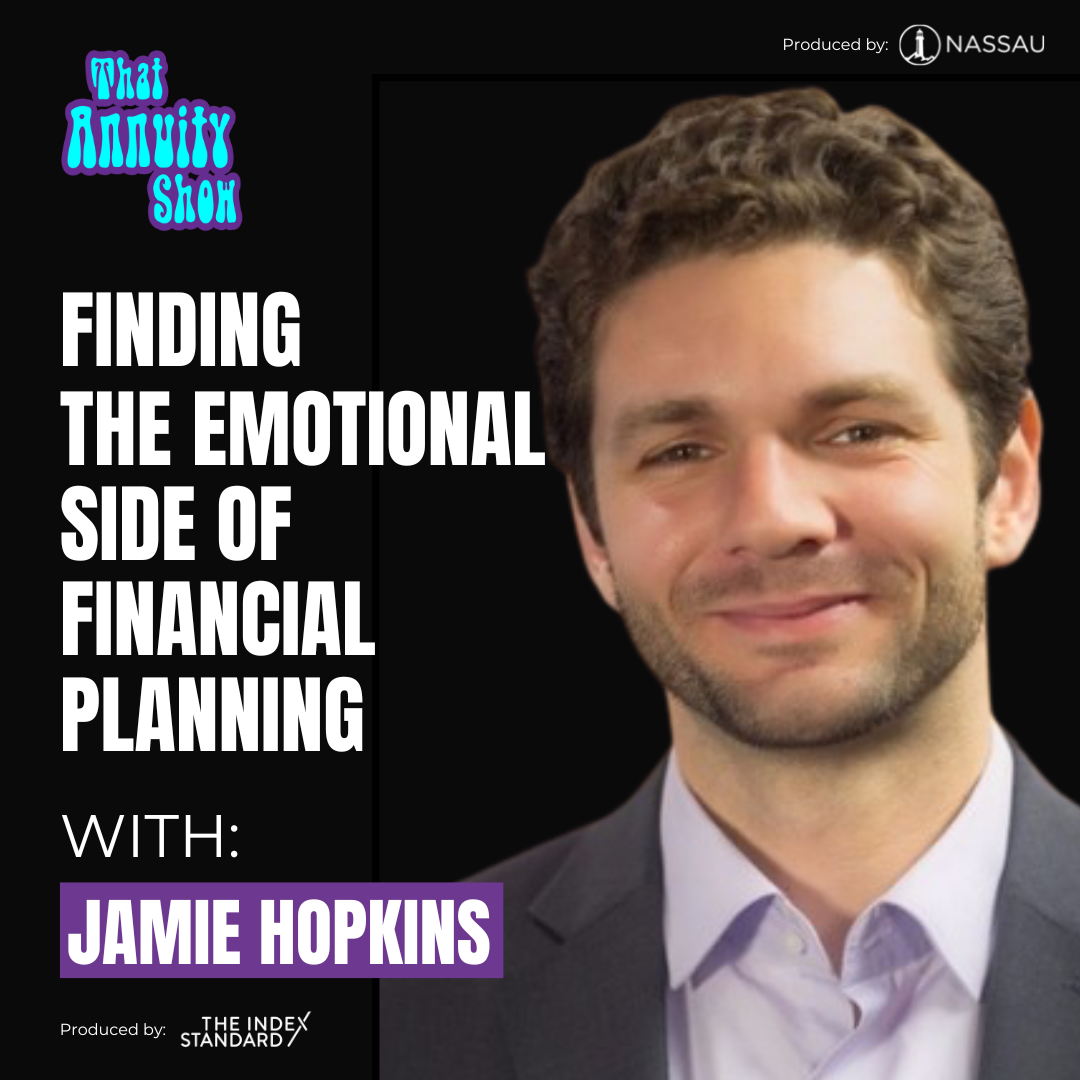




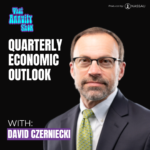
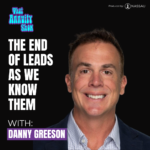
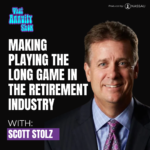
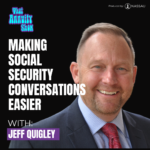
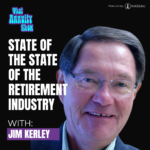

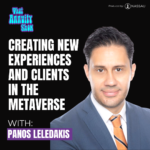

Leave a Reply